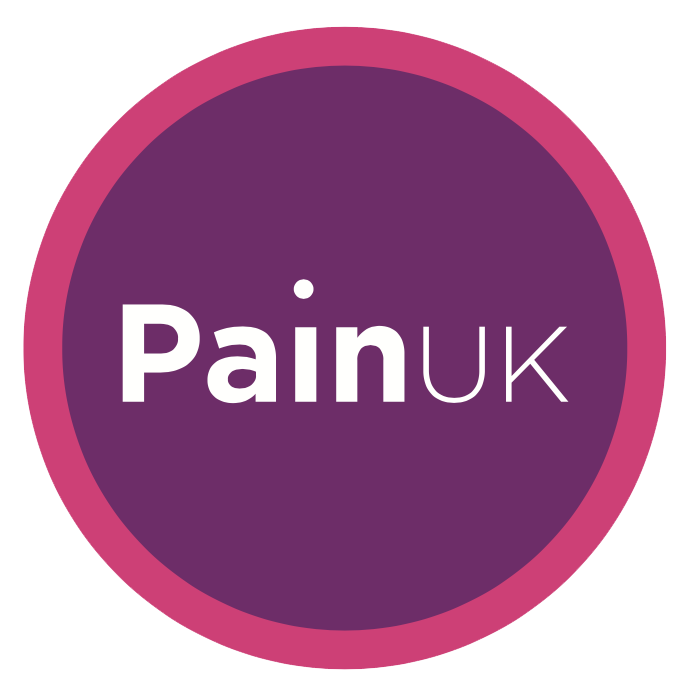Pain UK Call to Action
We are inviting Members of Parliament to pledge their support of the Pain UK Call to Action.
Supporting people who live with chronic pain
Pain UK is an alliance of charities providing support and help for people living with chronic pain.
We represent over 40 large and small charities from across the UK.
Pain affects us all
The Department of Health recognises chronic pain both as a long-term condition in its own right and as a component of other long-term conditions.
Across the UK there are currently 14 million people living with chronic pain.
Health and social care
- 66% of people attending A & E seeking help with pain had made 3 visits to a health care professional in the preceding weeks.
- 16% of chronic pain patients feel that their chronic pain is so bad that they sometimes want to die.
Welfare and benefits
- Of the 14 million people living with chronic pain, 3.5 million said their pain had kept them from their usual activities, including work, on at least 14 days in the last 3 months.
Employment
- The CMO report states that 25% of chronic pain patients lose their jobs, this contributes to 42% in the lowest income households being more likely to report chronic pain, compared with 27% in the highest.
- 41% of people who attended pain clinics report that their pain has prevented them from working and 13% have had to reduce their hours.
Societal impact
- Low back pain is ranked highest out of 291 conditions examined by the Global Burden of Disease study, ranking number 1 for years lost to disability worldwide.
- In fact 5 of the top 12 disabling conditions globally are persistent chronic pain conditions: low back and neck pain, migraine, arthritis and other musculoskeletal conditions.
By taking a small number of simple and practical steps, Pain UK believes that people living with chronic pain can be supported to achieve a better quality of life. Supporting people who live with chronic pain can only have a positive impact on the UK economy. It should be possible to reduce health and social care costs by ensuring that people living with chronic pain are better understood and are able to access the help they need in everyday life. This will assist them in achieving their full potential in the workplace whilst continuing to live with their pain.
Pain UK calls on relevant decision-makers to take the following practical action:
| Area: | Supporting people who live with chronic pain |
Action: | The Pain Charter – listen, believe, diagnose, treat |
Action by: | Pain UK, leading in collaboration with key decision makers and opinion leaders |
A Chronic Pain Charter should be produced to inform people living with chronic pain what they should expect from the health and social care system in terms of welfare and benefits, employment rights and how to address society’s attitudes.
This would enable places of care to sign up to the charter and display that they recognise the effects of chronic pain on someone’s quality of life and do their best to ‘listen, believe, diagnose and treat’ their patients.
| Area: | Health and social care |
Action by: | Professionals and those who commission and provide services |
Mandate health and social care professionals to actively involve people living with chronic pain in supported self-management.
People living with chronic pain to be provided with information, advice and support on what they can reasonably expect from health and social care systems, services and practitioners.
Healthcare professionals should ask about pain, and respond to it, at every consultation in primary, secondary and community care settings.
Area: | Welfare and benefits |
Action by: | UK Government including devolved governments |
Chronic pain to be recognised as a disability.
People living with pain to be eligible for benefits and support to help them in their everyday lives.
Area: | Employment |
Action by: | UK Government including devolved governments |
Workplaces and employers to provide advice and support to employees living with chronic pain.
Employers to be helped to make reasonable adjustments to ensure that their employees who live with chronic pain can continue to make a positive contribution.
Employers to be offered financial help to make the adjustments for people living with pain.
Economic impact of pain to be reduced by incentivising employers who employ someone who lives with pain.
Area: | Society: developing a broader understanding of pain and its impact |
Action by: | Pain UK and the UK media |
Pain UK and the media to work together to challenge the stigma associated with people living with chronic pain and its negative effects, by educating the public on the impact of pain on society and dispelling myths about this hidden and often invisible condition.
To create a greater level of understanding by encouraging others to share their own stories of living with chronic pain, how it has affected their lives and how they manage.
To raise awareness of the impact of chronic pain on the family and friends of people who live with the condition, and develop ways to support the needs of their family and carers.
References
1. Department of Health. Third Edition of LongTerm Conditions Compendium of Informa-
tion. Available at:https://www.gov.uk/government/news/thirdedition-of-long-term-condi- tions-compendiumpublished.
2. Bridges S. Health Survey for England 2011: Chronic pain (Chapter 9). NHS Health andSocial Care Information Centre. Available at https://catalogue.ic.nhs.uk/publica- tions/publichealth/surveys/heal-surv-eng-2011/HSE2011- Ch9-Chronic-Pain.pdf.
3. NHS Choices review Global Burden of disease study 2010
Available at http://www.nhs.uk/news/2014/03March/Pages/Back-pain-leading-
cause-of-disability-study-finds.aspx
4. National Pain Audit. National Pain Audit:Final Report. Available at: http://www.nation- alpainaudit.org/media/files/NationalPainAudit-2012.pdf.
5. CMO Report 2008. Available at http://webarchive.nationalarchives.gov.uk/ 20130107105354/http://www.dh.gov.uk/prod_consum_dh/groups/dh_digitalassets/doc- uments/digitalasset/dh_096231.pdf
6. Belsey J: Primary care workload in themanagement of chronic pain: a retrospective cohort study using a GP database to identify resource implications for UK primary care. Journal of Medical Economics 5:39-50, 2002.
